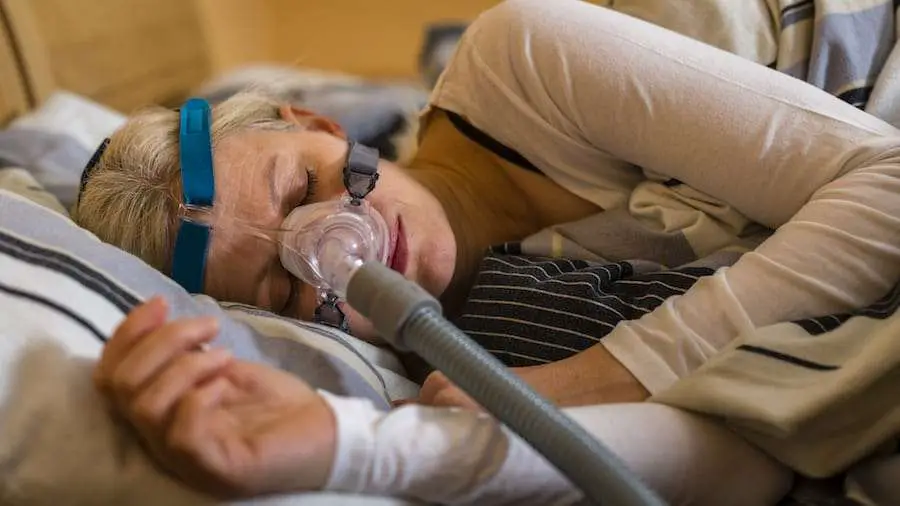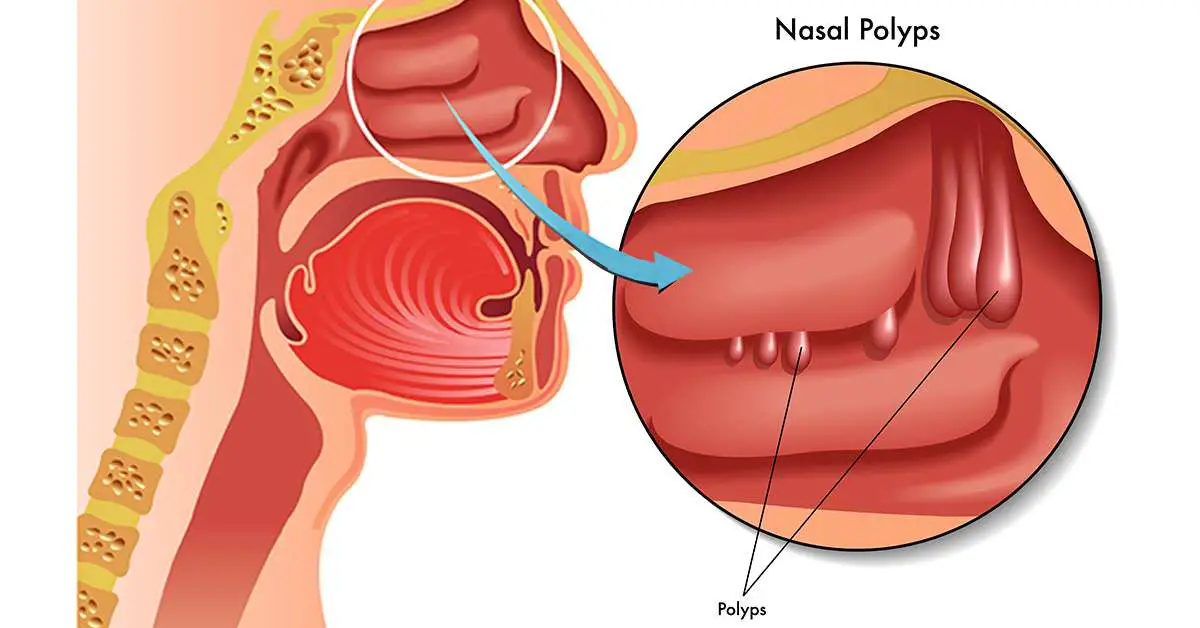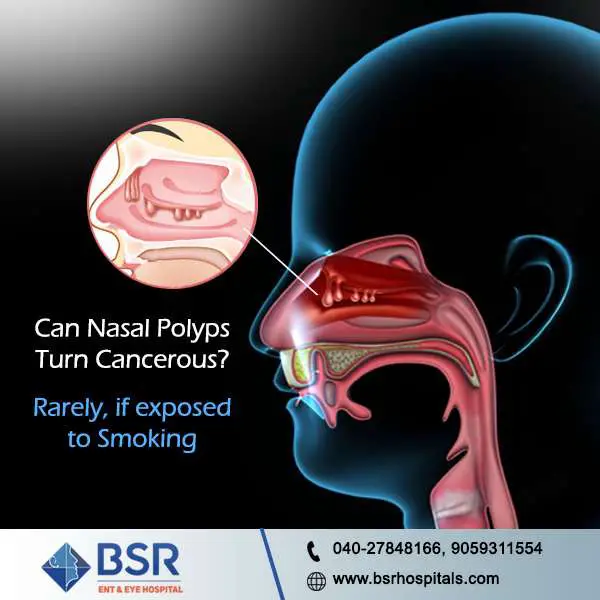How Do I Prevent Nasal Polyps
Not everyone will be able to prevent nasal polyps. However, there are a few ways you may be able to help yourself. The strategies include the following:
- Follow your doctors instructions on taking your allergy and asthma medications.
- Avoid breathing airborne allergens or irritants that lead to inflammation of your nose and sinus cavities.
- Practice good hygiene.
- Use a humidifier in your home to help moisten your breathing passages.
- Use a saline nasal rinse or spray to remove allergens or other irritants that may cause nasal polyps.
Visual Analog Scale And Nasal Obstruction Symptom Evaluation Scale
For the evaluation of nasal obstruction symptoms, all participants were asked to score their nasal obstruction severity in a 10-cm VAS, ranging from 0 to 10, with 0 meaning complete absence of nasal obstruction, and 10 meaning complete nasal obstruction.
The NOSE scale, previously adapted to Brazilian Portuguese,77 Bezerra TFP, Padua FGM, Pilan RRM, Stewart MG, Voegels RL. Cross-cultural adaptation and validation of a quality of life questionnaire: the Nasal Obstruction Symptom Evaluation questionnaire. Rhinology 2011 49:227-231 was also administered and calculated for all participants, with scores ranging from 0 to 12. Because of the characteristics of this study, the assessment of nasal obstruction during sleep and exercise was not considered.
What Causes Sleep Apnea
There are three main types of sleep apnea, each of which has a different cause.
- Obstructive sleep apnea : This is the most frequently seen type and is caused by a blockage of the upper respiratory airway. It can be caused when the soft tissue in the back of the throat collapses during sleep or the tongue falls back into the airway. Nasal issues such as a deviated septum or nasal polyps can also cause OSA.
- Central sleep apnea: The airway isnt blocked, but the brain doesnt properly signal the muscles to breathe.
- Mixed: This is a combination of OSA and central sleep apnea.
Read Also: Sleeping In Cold Room Lose Weight
Nasal Polyps Treatment Miracle
Nasal Polyps, also known as Sinus Polyps, are non-cancerous growths in the nose or in the sinuses .
The cause symptoms similar to those of cold and flu however, the symptoms caused by nasal polyps will never get better. You may therefore have a persistently blocked or stuffy nose, and you may experience mucus running down the back of your throat.
In addition, large polyps interfere with breathing and this can cause chronic headaches due to lack of oxygen. You may also find yourself yawning a lot, and experience daytime fatigue, even after a proper nights sleep. You will notice that you dont smell or taste as good as you used to.
Do You want to Shrink nasal polyps without surgery and removal of nasal polyps at comfort of your home!
Do you want to cure nasal polyps naturally and permanently?
Read below Now!
The Link Between Nasal Polyps And Snoring

Nasal polyps number among many causes of obstructions within the nasal passages. Such obstructions can lead to increased strain being required for the simple act of breathing. When asleep, this can often enough result in snoring. Read on to discover the link between nasal polyps and snoring in an effort to combat this undesirable activity.
Don’t Miss: How Many Hours Of Sleep For Weight Loss
Nasal Polyp Symptoms Diagnosis And Treatment
Should cold symptoms extend for months on end, or should partial or total loss of sense of smell occur, the culprits may be nasal polyps. A less common symptom is the loss of ones sense of taste. If you suspect that you have nasal polyps, it is recommended that you make an appointment with your physician. A CT scan will determine if you indeed have this condition, indicated on the scan by small, opaque splotches within the nasal cavity.
Your doctor may determine that surgery is necessary to remove the obstructions. Such surgeries are safe and remarkably effective. Note, however, that nasal polyps may grow back with time. The occasional surgery, every few years, may be necessary to maintain easy breathing.
If you are a frequent snorer and are concerned that you might have developed nasal polyps, or if you are snoring and are unsure of the cause, Atlanta ENT can help you identify and resolve the problem. Visit our website to find our answer to snoring. You could be breathing an unobstructed sigh of relief sooner than you might think.
Article from Slumber Yard
Gno Snoring And Sinus Offers New Nasal Polyp Therapy
Dupixent® Injection Therapy Reduces Nasal Polyps.
GNO Snoring and Sinus, the New Orleans area experts in office-based treatments for sleep apnea and sinusitis, has added a novel therapy to its armamentarium of treatment options for patients suffering from Chronic Sinusitis with Nasal Polyps .
Dupixent® is an FDA-approved biologic injection medication that acts as an inhibitor of interleukin-4 and interleukin-13 , which are key drivers in the inflammatory response that causes nasal polyps to develop.
CRSwNP is a chronic disease of the upper airway that obstructs the sinuses and nasal passages. It can lead to breathing difficulties, nasal congestion and discharge, reduced or loss of sense of smell and taste, and facial pressure. CRSwNP can be debilitating, with many patients opting for systemic steroids or nasal surgery, which often cannot control this disease.
Dupixent® therapy is currently approved by various insurance companies provided patients have clinical evidence of Chronic Sinusitis with Nasal Polyps, evidence of disease on nasal endoscopy or CT scan of the sinuses, and the patient has been unable to obtain relief of polyps despite various medications and/or surgery.
For more information on Dupixent® Therapy and to learn more about GNO Snoring and Sinus, call 504.309.8615 or visit gnosnoring.com.
Recommended Reading: How Does Your Body Burn Fat While Sleeping
Causes Of Sleep Apnea
Obstructive sleep apnea occurs when a persons breathing frequently pauses during their sleep. This pause during breathing often wakes up the patient with sleep apnea resulting in an unrestful night of sleep.
Sleep apnea and snoring are often conflated. The two sleep disorders result from very similar causes, and snoring is the main symptom of obstructive sleep apnea. However, with sleep apnea, the patient stops breathing altogether .
This phenomenon occurs because the sleepers throat muscles have either collapsed too much or are obstructed by oversized organs. These interruptions can occur as many as 30 times during just one hour of sleep.
Can sleep apnea be caused by congestion? In fact, congestion is the main link between chronic sinusitis and sleep apnea. The following additional conditions can contribute to your sinus problems and snoring and can increase the severity of your snoring and sleep apnea:
- Sinusitis
- Getting up frequently to urinate during the night
- Increased likelihood of heart disease and stroke
People who struggle with both sinusitis and sleep apnea are very likely to have sinus sleep problems, problems that extend beyond chronic sinusitis fatigue. The sleep time of a sleep apnea patients bed partner is often disturbed, too, and sleep partners may share some of the same symptoms.
Daytime Effects Of Sinus & Allergy Induced Insomnia
Sinus and allergy issues can both lead to difficulty sleeping, which has serious side effects on a persons life during the day. Without restful sleep during the night the body is unable to recharge and recuperate. While in the short term this isnt always a problem, having insomnia or sleeping issues for an extended time can negatively affect everything in your daily life from your energy and motivation, to your mental and physical health.
Your body relies on the hours of being shut down to convert calories into energy and refresh the brain. When allergies or sinusitis get in the way of good sleep, you can wind up feeling stressed, flustered, foggy and exhausted. It can be harder to get things done and to enjoy the usual activities because your mind isnt processing at full capacity. You may not even realize that lack of quality sleep is the underlying reason for stress or tension in your life and body. Being continually stressed or tense as a result of poor sleep can lead to serious health risks like high blood pressure.
Also Check: Newborn Breathing Patterns While Sleeping
When Are Nasal Polyps An Issue
In the United States, an estimated 4% of individuals have nasal polyps. That may sound small but its close to 14 million people.
Nasal polyps arent really a big issue for many. They stay small, hidden, and dont cause very many symptoms. But for some people, nasal polyps produce a whole host of problems which range from a runny nose to extreme sleep conditions.
So when do nasal polyps become an issue? And what can be done about them when that takes place?
Design Setting And Study Population
An analytic, observational, and cross-sectional study was conducted at a tertiary otorhinolaryngology referral center, from January 2016 to August 2016. Participants were divided in two groups. The NP group included only those individuals with a recent diagnosis of NP, according to the European Position Paper on Rhinosinusitis and Nasal Polyps 2012 guidelines,55 FokkensWJ, Lund VJ, Mullol J, et al. EPOS 2012: European position paper on rhinosinusitis and nasal polyps 2012. A summary for otorhinolaryngologists. Rhinology 2012 50:1-12 and with polyps graded 1 according to the Meltzer polyp grading system.66 Meltzer EO, Hamilos DL, Hadley JA, et al Rhinosinusitis Initiative. Rhinosinusitis: developing guidance for clinical trials. J Allergy Clin Immunol 2006 118:S17-S61 The control group included only healthy individuals. For both groups, participants should be older than 18 years-old and younger than 65 years-old, and the following were excluded:
-
Those using or who had recently used antihistaminic or antihypertensive drugs, topical vasoconstrictors, systemic vasodilators, or systemic/topic corticosteroids
-
Those with severe septal deviation precluding nasal endoscopy or the use of nasal cannulas for acoustic rhinometry
-
Those with a present or past history of tumors, prior sinonasal surgery, known diagnosis of obstructive sleep apnea, and/or use of CPAP
-
Those with a present or past history of smoking or illicit drug use.
You May Like: Sit N Sleep Costa Mesa
What Causes Nasal Blockages
There are several possible causes of nasal blockages or obstruction. These include allergies, sinus problems, nasal polyps, and a deviated septum. Using nasal sprays too much or having a foreign object in the nasal passages can also cause nasal blockages. In many cases, nasal blockages are temporary. Treating the underlying cause can remove the obstruction, allowing air to flow freely through the nasal passages again.
What Causes Nasal Polyps

The true cause of nasal polyps is not fully understood. Scientists and doctors do believe it has something to do with inflammation of the mucous membrane along the nasal and sinus passages. This could be a result of immune system responses or the chemical makeup of an individuals nasal lining. When the lining of your nose gets inflamed, it causes swelling. Over time, the swollen tissue can grow, and hang from a stalk, as a jelly-like benign growth, which is called a nasal polyp.
However, just because inflammation is present, or the immune system gets triggered, doesnt mean nasal polyps are necessarily present. Some people develop them easily, and some never get them at all.
But just because you havent experienced them yet, doesnt mean you never will.
Nasal polyps can develop at any age, though theyre most common as we reach adulthood or midlife and gradually increase as we age.
If you suffer from asthma, cystic fibrosis, Churg-Strauss syndrome, a vitamin D deficiency, or certain allergies, you may be at greater risk of developing complications due to nasal polyps. Some viruses also contribute to an overgrowth of polyps.
Don’t Miss: Does Sleeping On Your Stomach Reduce Belly Fat
What Symptoms May Be Experienced
If nasal polyps do produce symptoms, the mild ones include postnasal drip, a recurring runny nose, sneezing, persistent stuffiness, and difficulty smelling. More severe symptoms associated with nasal polyps may include headaches and facial pain, pressure in the forehead and around the nose, and changes in the ability to taste. Some individuals also report issues with an increased sensitivity to dust, strong odors, and other irritants. Changes in breathing patterns may also contribute to snoring and difficulties with sleep.
What To Expect With Surgery For Nasal Polyps
Nasal polypectomy is the surgical removal of nasal polyps, which are abnormal noncancerous growths that can form from inflammatory materials in your nasal passages or your sinus cavities. They can cause symptoms, including difficulty breathing and congestion. While not all polyps need to be surgically removed, in some cases you and your healthcare provider may decide that surgery is the best option for you.
When visualized, polyps are a semi-translucent gray color. A nasal polypectomy is not always a cure for nasal polyps. They can grow back if the underlying cause is not treated.
Recommended Reading: Black Friday Deals On Sleep Number Beds
Do Nasal Polyps Cause Sleep Apnea
If the thought of having growths in your nose makes you a little uncomfortable, youre not alone. Though generally considered non-cancerous, nasal polyps are common because they can block airways.
If youve been told you breathe through your mouth at night or make loud, gasping noises when you sleep, you could be battling obstructive sleep apnea . Its a common but serious health condition that can lead to other life-threatening events, including stroke or heart attack, if not treated properly.
Curious if nasal polyps are causing you sleep apnea? Heres how you can tell and what you can do.
Nasal Polyps And Sleep Apnea: Whats Behind The Link
Treating your nasal polyps may reduce your risk of sleep apnea.
If you have nasal polyps, you might feel like you can tough it out and be fine. You may not even realize you have nasal polyps, since they can mimic sinus infections or bad colds. However, without treatment, polyps can affect your quality of life. Nasal polyps may even affect your sleep by increasing your risk of obstructive sleep apnea.
Also Check: What To Eat Before Sleep For Weight Loss
What’s The First Thing To Happen
Let’s first note what nasal polyps are. The nasal polyps are small nasal growths hanging from the nasal lining. They are painless and cancer-free. If they’re small, they may not even cause trouble. However, if they are larger, the airways can be blocked and cause various symptoms. These may include other symptoms and complications like asthma, sleep apnea , snoring, pain, “tightness” in the sinus region after nasal drop .
Your ENT doctor would likely try drugs before going into surgery for decreasing the size of the polyps and alleviate their symptoms. These often perform reasonably well to make surgery unnecessary.
Check If You Have Nasal Polyps
Symptoms of nasal polyps include:
- blocked nose
- constant need to swallow
- reduced sense of smell or taste
- nosebleeds
- snoring
Nasal polyps can sometimes feel like a cold. But colds tend to clear up within a few days, whereas nasal polyps will not get better unless they’re treated.
If your polyps block your sinuses you may also have symptoms of sinusitis.
Also Check: How Does Sleep Number Track Heart Rate
Keeping Polyps Away With Steroid Nose Sprays
Some people are prone to repeated nasal polyps. Steroid nasal sprays can be used regularly, long-term, to try to prevent further polyps from developing. Steroid nasal sprays include beclometasone, budesonide, fluticasone, mometasone and triamcinolone. You can buy some of these sprays over the counter from pharmacies, without a prescription.
It is best to see a doctor first, to have the correct diagnosis of nasal polyps, before buying medicines and treating yourself.
Regular use of a steroid nasal spray is safe. The amount of steroid in a spray is less than in the drops. Drops are better at clearing polyps if they do come back.
What Are Nasal Polyps

Nasal polyps are growths that develop in the nose or sinuses. Theyre actually quite common and may be caused by allergies, inflammation, or infection.
Typically, nasal polyps dont cause any symptoms. Unlike some other types of polyps, theyre usually noncancerous.
In some cases, though, there are symptoms. These include itching, runny nose, sneezing, difficulty breathing, and more.
Doctors may prescribe steroid nasal sprays or prednisone for relief, which can stop symptoms or get rid of polyps altogether. Symptoms and polyps may come back, though.
If youre seeking natural alternatives to medications, this article explores what treatments may work best and are most effective.
Most treatments are shown to improve symptoms and discomfort associated with nasal polyps. None are proven to get rid of nasal polyps completely.
You May Like: Do You Burn Calories While You Sleep
Synopsis Of Key Findings
Positive pressure significantly worsened the nasal obstruction symptoms and decreased the objective parameters of nasal patency in control subjects. In patients with NP, exposure to CPAP reduced the nasal polyps’ size and the nasal patency, as measured by PNIF. However, it had no significant effects on AR and on nasal obstruction symptoms.
What To Expect Before Surgery
A nasal polypectomy is an outpatient procedure. This means that you will go home on the day of your surgery.
Your pre-operative CT scan will let your surgeon know whether your polyps are isolated to only the nasal passages, or if you have polyps in any of your sinus cavities. This will be important for surgical planning.
Before your surgery, you will likely be instructed on the following things:
Typically, younger children are scheduled in the morning, and adults are often scheduled afterward. If you have any questions regarding the procedure, you should reach out to your surgeon’s office.
Recommended Reading: Sleep Number Store Pineville Nc